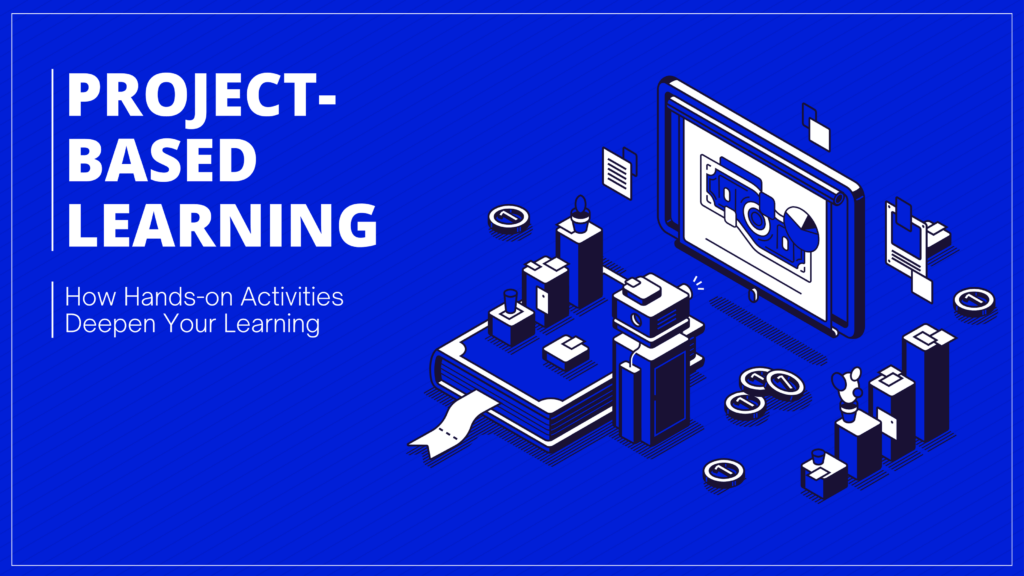Imagine being a beginner in the DevOps space and successfully containerizing a Java project using Docker. This is just one example of the possibilities that project-based learning can offer.
For those unfamiliar with the term project-based learning, I want to clarify what I mean by “Project-based Learning”. This is an approach to learning that immerses students in solving real-world problems through practical projects. Imagine tackling relevant challenges that mirror what they might encounter in their future careers! This is the essence of project-based learning, particularly valuable in the tech field where students gain practical experience to complement their theoretical knowledge.
This approach allows students to apply theoretical knowledge to practical scenarios, enhancing their understanding and retention of concepts. By working on projects, students can also build a portfolio that showcases their skills and experiences, making them more attractive to potential employers. Overall, project-based learning is a highly effective method for preparing students for the demands of the tech industry.
The Need For Project-Based Learning
In the tech industry today, numerous career paths exist, each offering a range of roles and job opportunities. With a global population of 7 billion, the supply of human resources for these roles seems abundant, with many individuals eager to pursue careers in tech. However, the real challenge lies in identifying the most qualified candidates for these positions. To address this challenge, companies often establish specific requirements that candidates must meet to be considered for certain roles.
While many individuals prioritize obtaining certifications in their chosen fields, I believe that certifications, while valuable, do not encompass the entirety of what is needed to succeed in tech. Here’s why:
In my first year in tech, I enrolled in a Cloud Engineering Bootcamp fresh off an AWS cloud computing training. While I had a solid foundation, my knowledge was still limited. I was particularly impressed by fellow participants who had multiple certifications, assuming they were the ones to learn from. However, as the boot camp progressed, I realized that these individuals, whom I looked up to, struggled to navigate the course. While it wasn’t easy for me either, certain concepts were easier to grasp due to my prior cloud knowledge. With time, research, and effort, I managed to succeed. On the other hand, many of them ended up seeking my help and assistance.
Through these interactions, I realized that while they had theoretical knowledge, they lacked practical experience. It’s one thing to understand the theory behind setting up load balancing for static websites using Nginx, but it’s another to deploy servers, set up websites, and configure load balancers to properly route traffic. This experience emphasized the importance of project-based learning, which excels at preparing students for the real-world challenges they will face.
Benefits of project-based learning
Creativity: Creativity is a vital skill fostered by project-based learning. This approach encourages critical thinking, creativity, and problem-solving abilities. In the tech world, things often don’t go as planned. We might believe our code is flawless, but upon running it, we’re greeted by numerous errors. These errors can range from syntax issues to dependency conflicts and versioning problems, among others. The capacity to troubleshoot and resolve these issues on the fly is what sets a skilled technician apart.
Real-World Application: Project-based learning serves as a bridge between theoretical knowledge and practical application in the tech industry. This approach enables individuals to take their theoretical understanding and apply it to real-world tech challenges, creating solutions based on their learning. By doing so, individuals not only reinforce their understanding of the material but also develop valuable, transferable skills that are directly applicable in the workplace.
Preparation for the workforce: While learning on the job can be beneficial, having prior experience in encountering and resolving similar errors can be extremely advantageous in the workplace. It’s far better to have some idea of how to tackle a problem than to be completely unaware. Project-based learning plays a crucial role in developing the skills and competencies that are highly valued in the tech workforce.
In summary, project-based learning stands as a potent tool in tech education, providing an approach that not only imparts technical skills but also cultivates creativity, critical thinking, and innovation. It effectively readies students for a smooth transition into the tech workforce, ensuring they are equipped to meet the industry’s demands and adapt to its ever-evolving landscape.






